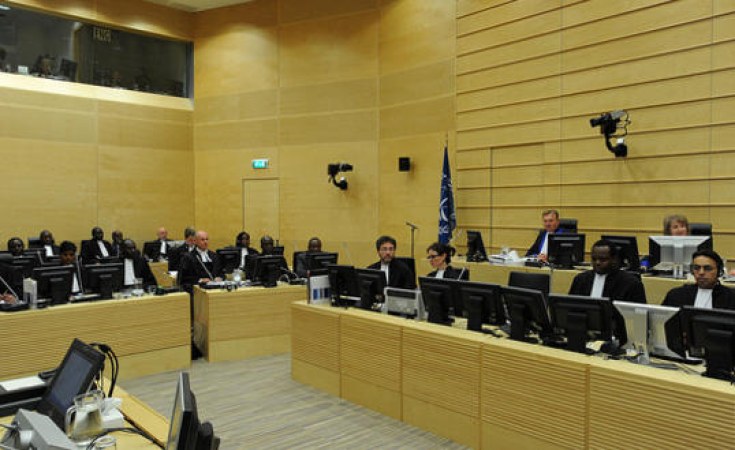On June 25 a number of important actors will convene in Dakar to discuss issues related to the International Criminal Court. Senegal is one of many African states that were early supporters of the court as an institution to make a decisive push in the fight against impunity.
Participants at the discussion in Dakar include high-level representatives from a number of French-speaking countries of the African continent.
Looking back in history, African states were key players in the creation of the court. The Rome Statute, by which the court has been established, reflects many key African positions, such as giving priority to domestic legal proceedings, the independence of the prosecutor and the court's independence from the United Nations Security Council. Today, I am gratified to preside over an Assembly of 122 States Parties, 34 of which are from Africa.
Recently, the Court and its activities have received considerable attention in the world media. Apart from regular updates on individual cases, attention has been given to broader issues relating to the court.
All this is testimony to the fact that, 11 years into its existence, the court has really started making a significant footprint on the international scene.
What people are asking now is not if the court will ever have any work - as was the case after the Rome Conference in 1998 - but rather: Is it going too fast? Is it working as we imagined? The discussions that we see in the world media, including the media in Africa, show increasing attention to the institution, but sometimes some of the basic facts get lost in this debate.
It is at times forgotten that states put the ICC in place. States Parties are the stakeholders of the Rome Statute system. The way the court works now, addressing genocide, crimes against humanity and war crimes, is a direct result of the decisions states took in crafting the founding documents of the court. States Parties also have the responsibility and ability to update these founding documents, as they did at the Review Conference in 2010 in Uganda when they added the definition of the crime of aggression and how the court would exercise its jurisdiction over this crime to the Rome Statute.
Similarly, States Parties collectively elect the prosecutor, and states themselves have defined the prosecutor's independence and powers to initiate investigations. Additionally, it is often times forgotten how important it was during early discussions about setting up an international criminal court, that such court be based on an internationally-negotiated treaty and have independence from the United Nations Security Council.
A very important fact not to be overlooked is that a number of States Parties have given practical votes of confidence to the court, in the form of referrals concerning crimes within their own territories - notably Uganda,the Democratic Republic of Congo, the Central African Republic, Mali and Comoros. The states that have made these referrals have demonstrated confidence that the ICC will be able to investigate crimes when the states themselves are not in a position to do so.
We should not forget that the ICC is a court of last resort and that by signing up to the Rome Statute, states have also undertaken to develop domestic capacity to investigate and to prosecute international crimes that fall under the jurisdiction of the court. The preamble of the Rome Statute states that "it is the duty of every state to exercise its criminal jurisdiction over those responsible for international crimes".
This domestic capacity is still lacking in many States Parties and I sincerely hope that states requiring assistance with their domestic legislation or capacity will ask for assistance from relevant organizations.
In order for the court to succeed, States Parties have to be continuously aware of the necessity to cooperate with the court. The common feeling of ownership and responsibility of all 122 States Parties also has to translate into a continued commitment to assist the court in its pursuit of international justice.
The discussions in Dakar will focus on one aspect of this cooperation - the protection of witnesses. For the court, witnesses are a critical element for gathering evidence and building cases. Given the nature of its work, the ICC often operates in situations of ongoing conflict, or of immediate post-conflict, where security is a key issue. The ICC can take a number of measures to protect its victims and witnesses, including negotiating agreements on relocation of witnesses on behalf of the court. The conclusion of such agreements depends entirely on the voluntary cooperation of states and is another facet of cooperation that States Parties can extend to the court.
/Ambassador Tiina Intelmann is the President of the Assembly of States Parties to the International Criminal Court, the oversight body which governs the court and comprises representatives of all countries which have ratified the court./


